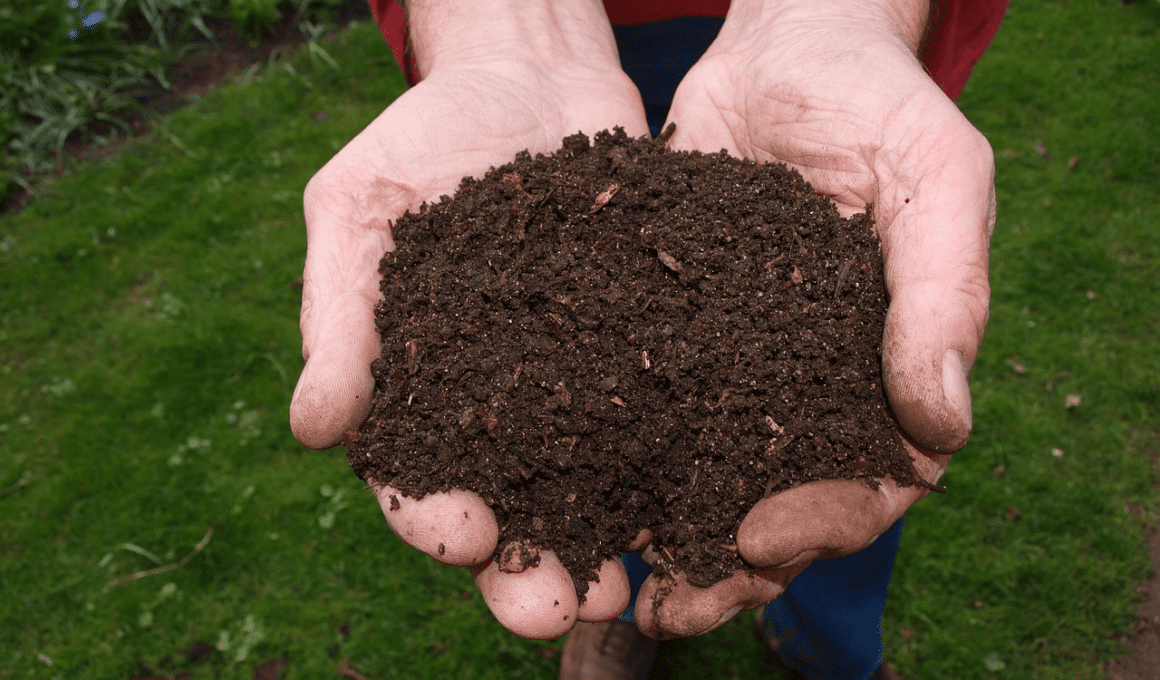Are you looking for a way to improve the quality of your garden soil without harming the environment? Composting tomatoes is an excellent solution! Not only does it reduce waste in landfills, but it also provides a nutrient-rich soil amendment that will help your plants thrive.
Composting tomatoes is a simple process that involves collecting kitchen and yard waste, including tomato scraps, and allowing them to decompose over time. This process creates a natural fertilizer that is free of harmful chemicals and pesticides, making it safer for you and your family to use in your garden.
Plus, by composting tomatoes, you’re helping to reduce the amount of greenhouse gases that are released into the atmosphere, which is good news for the planet. So, let’s take a closer look at the pros and cons of composting tomatoes and how you can get started today!
Quick Takeaways
- Composting tomatoes is an ecologically-friendly way to recycle old tomatoes and plants and create a rich soil amendment.
- Chopped tomatoes should be added as a green, nitrogen-rich ingredient to compost, along with brown, carbon-rich ingredients.
- Hot composting is the best system to use when composting tomatoes, and the compost should be turned every 5-7 days and monitored for moisture levels.
- Decomposition of tomatoes is affected by temperature, rainfall, and local microbes, and the final compost should be dark, crumbly, and soil-like.
How Can Composting Help Improve Tomato Plant Health and Growth?
Composting offers invaluable benefits for planting tomatoes tips. By enriching the soil with organic matter, compost feeds essential nutrients to the tomato plants, promoting their overall health and growth. The compost’s moisture retention properties help regulate water availability, preventing both drought stress and excess water accumulation. In addition, compost enhances soil structure and texture, facilitating root development and nutrient uptake. Embracing composting practices elevates the health and productivity of tomato plants.
Pros and Cons
So, you’re wondering about the pros and cons of composting tomatoes? Well, let’s take a closer look.
Composting tomatoes is a great way to recycle old plants and add moisture and nutrients to your compost. By doing this, you’re not only creating a rich soil amendment, but you’re also helping to improve the landscape of your backyard. Plus, composting is an ecologically-friendly way to recycle yard and kitchen waste.
However, there are some potential issues to be aware of. Large batches of tomatoes can make compost too wet, and pests or diseases can transfer to the compost. Seeds may also sprout in the compost or where it is spread, and fibrous tomato flesh, seeds, and skin take longer to break down.
But don’t worry, there are best practices you can follow to avoid these issues. Composting pros suggest dealing with possible diseases, pests, or seeds spreading into the garden. By monitoring your compost and turning it regularly, you’ll be able to create a dark, crumbly, and soil-like final product.
Composting Process
To properly decompose your chopped tomato waste, you should add nitrogen-rich ingredients along with carbon-rich materials, and regularly turn the mixture every 5-7 days while monitoring moisture levels. Hot composting is the best method to use when composting tomatoes, as it breaks down the waste faster and kills any potential pathogens or weed seeds. It is important to maintain the proper moisture levels in the compost pile, as too much water can cause the compost to become too wet and smelly, while too little water can slow down the decomposition process.
To ensure your compost pile stays on track, here are some tips for moisture control:
| Do | Don’t |
|---|---|
| Add water to the pile during dry spells | Overwater the pile |
| Cover the pile during heavy rainfall | Leave the pile uncovered in the rain |
| Monitor moisture levels with a moisture meter | Rely solely on visual cues to determine moisture levels |
| Adjust the pile’s ingredients to balance moisture levels | Add too many wet ingredients without balancing with dry ingredients |
By following these tips and utilizing hot composting, you can reap the benefits of eco-friendly soil boost while also recycling your old tomato waste. Not only will you be contributing to a healthier environment, but also to a healthier garden.
Tomato Decomposition
If you’re wondering how quickly your chopped or whole tomatoes will decompose, keep in mind that decomposition time can vary depending on factors such as temperature and rainfall. Whole tomatoes can take anywhere from 1 to 5 months to decompose, while chopped tomatoes can decompose within just a week or two.
The decomposition process of tomato plant stems and leaves, on the other hand, can take between 3 to 6 months. The speed of tomato decomposition is also affected by local microbes.
Tomatoes are 95% water, which means that they decompose quickly and add moisture to the compost. When composting tomatoes, it’s important to remember to turn the compost every 5-7 days and monitor the moisture levels. By doing so, you can ensure that the tomato and other compost ingredients break down properly and create a dark, crumbly, soil-like compost that can boost the health of your garden.
Frequently Asked Questions
Can you compost tomatoes with other types of fruits and vegetables?
Yes, you can compost tomatoes with other fruits and vegetables. Tomato composting is a great way to recycle kitchen waste and make an eco-friendly soil boost. Use a mix of green and brown materials, and monitor moisture levels and turning to ensure proper decomposition.
Is it safe to use compost made from tomatoes on edible plants?
Using compost made from tomatoes on edible plants has benefits, such as adding nutrients to the soil. However, there are potential risks like the transfer of diseases and pests. Monitor the compost carefully and consider dealing with these risks before use.
How long does it take for tomato seeds to sprout in compost?
Composting tips: be aware of seed germination. Tomato seeds can sprout in compost in as little as a week. Turn compost regularly to prevent this. Keep moisture levels in check and monitor until fully broken down.
Can you use rotten or moldy tomatoes for composting?
You should avoid using rotten or moldy tomatoes for composting. They can attract pests or spread diseases. Benefits of composting include recycling yard and kitchen waste and creating rich soil. Tips for successful composting include turning regularly and monitoring moisture levels.
How much compost should be added to a vegetable garden?
To boost your vegetable garden, add compost at a ratio of 1:2 (compost to soil). Benefits of composting include improved soil structure, water retention, and nutrient availability. It’s an eco-friendly way to grow healthy plants!
Conclusion
Congratulations! You now know the benefits of composting tomatoes, how to go about it, and what to expect with the decomposition process.
You’ve learned that composting tomatoes is an eco-friendly way to create a rich soil amendment for your garden. By composting, you’re not only reducing your waste but also giving back to the earth.
Remember to add a variety of materials to your compost pile, including nitrogen-rich materials like tomato scraps and carbon-rich materials like leaves and branches. Keep the pile moist and turn it regularly to ensure proper decomposition.
With some patience and care, you’ll have nutrient-rich soil for your plants in no time. Happy composting!







